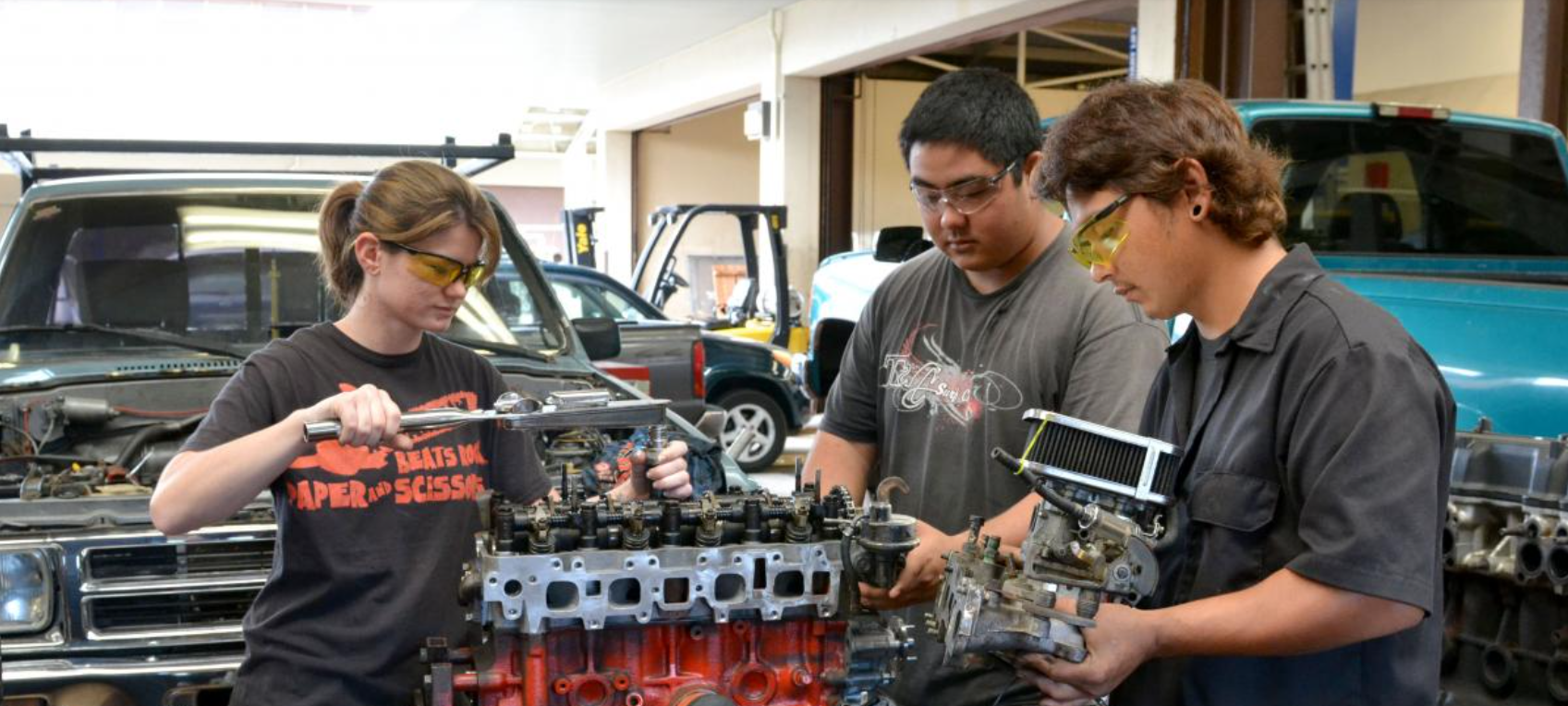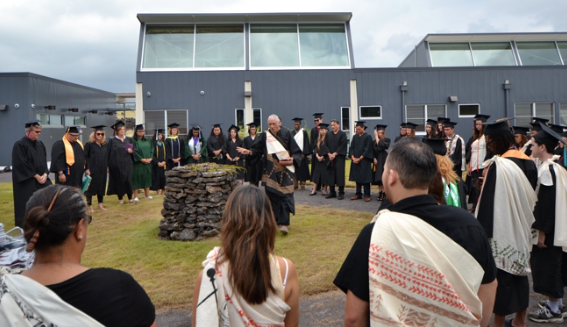Using Data to Democratize Education on Hawai‘i Island
by Kendrick Leong, Hawai‘i Data Collaborative
Chancellor Rachel Solemsaas of Hawai’i Community College (HCC) is clear about her priority when it comes to serving students in need: democratizing education. She defines democratizing education as:
Open Access - Making college available to those who have been historically marginalized and/or disenfranchised;
Equity - Closing the attendance and achievement gap for historically underserved students so educational achievement is attainable for all;
Commitment to Success - Ensuring that once students are enrolled, they have the support they need to complete their educational goals.
To make these priorities a reality, we’ve partnered with Chancellor Solemsaas and her team to leverage existing data while also cultivating a data culture at HCC that not only informs decision-making, but teaches students how to be data literate as well.
Defining Narratives and Need
In order to reach underserved populations, it’s essential to understand who is and isn’t attending college, and why. Chancellor Solemsaas uses Aloha United Way’s ALICE (Asset Limited, Income Constrained, Employed) data to understand the story behind ALICE in the community. Upon disaggregating the data by race, ethnicity, and socioeconomic status, gaps in opportunity become visible. And at the same time, through Vibrant Hawai‘i’s work, an alternate narrative emerges.
“People are saying ‘I’m broke, but I’m not broken.’ This gives us a shift in perspective from focusing on deficits to asset building. Looking at first generation students, we’ve always focused on what they lack in social, cultural, and financial capital rather than seeing that they are deeply resilient. Opportunity gaps in the community could derail their journey, so we’re looking at how to support their resiliency and make HCC a path to socioeconomic mobility”
Data-Guided Approach to Developing Solutions
To better understand and reach ALICE populations, we employed our Hawai‘i Population Model to gain insight into the factors that lead to declining enrollment. “We hear about and observe declining enrollment, but why?” Chancellor asked. Data revealed the following insights:
For students who are most likely to be college-bound, there’s a strong narrative that you have to leave Hawai‘i to get a good education (though this is less prevalent on Hawai‘i Island);
Students are deferring college and moving to the mainland to work instead;
Students question the value of higher education;
Males are more likely to put off college for work opportunities;
Public high schools on Hawai‘i Island have some of the lowest college attendance rates in the state;
There are more than enough high school seniors, who are not pursuing college or a career after high school, to have full enrollment at HCC, yet HCC is currently under-enrolled by about 500 students from pre-pandemic levels.
Understanding these trends allowed Chancellor Solemsaas to identify data-guided ways to address them:
Focus counseling, marketing, and outreach efforts on sharing data that shows that having a post-secondary credential or degree allows for greater career mobility and earning potential;
Expand work-based learning opportunities that males are more likely to attend;
Advocate for workforce Pell grants to support working students;
Develop programs with stackable credentialing for students who are simultaneously working and taking care of families;
Redesign early college programs with career technical focus (programs where students earn college credits to work towards a post-secondary certificate or degree while still in high school).
In 2018 HCC made the choice to focus on technical careers for early college – to reach those who may not otherwise be college-bound – by starting with an auto mechanics pilot program at Kealakehe High School. By the end of senior year, participants had earned half their credits for an associate degree. Nine of 12 students continued after high school graduation to complete their degree and were hired soon after. HCC now offers an agriculture-based early college program in Ka‘u, culinary arts programs in Kona and Hilo, and construction college academies at four other high schools across the island.
The Ka‘ao Framework: Cultivating Data Culture and Data Literacy
Developed during Chancellor Solemsaas’s tenure, the Ka‘ao framework has become a cornerstone for supporting students through their educational journey at HCC. Designed to teach data literacy and critical thinking, and to serve as a guide through each student’s “hero’s journey” of post-secondary education, the Ka‘ao framework is the entry point for all new HCC students providing a structure and support system. “Ka‘ao [creates a space for students] to celebrate successes and pivots, as well as identify challenges and points of resilience and success,” says Chancellor Solemsaas.
A potential next step for the Ka‘ao framework would be to develop a Ka‘ao KAI, including a dashboard to aggregate and share students’ collective lived experience, backed by data. Chancellor Solemsaas adds, “We need more data-literate people in the community and at HCC - there is no shortage of data miners, but we need folks who can use the data, do analytics, and build intelligence to develop tangible actions and impacts. With the Ka‘ao framework, we ask, ʻHow do we shift the culture for all to be analytical and intelligent about data through storytelling?’ Systemic change starts with all of us beginning to say, ʻWe’re moving ahead this way because of what the data shows.’ Then our actions will have a tangible impact.”
Responsive Data to Best Serve the Community
In Chancellor Solemsaas’s ideal world, the Ka‘ao dashboard – or any other data source for that matter – would be highly responsive, able to evolve, and updated often - in real time if possible. “Student success is not static and [the factors that contribute to it] are very complex. We need a deep and accurate understanding of our learner profiles and needs in order to adapt, especially as our communities become more diverse, like the growing Marshallese community on our island,” says Chancellor Solemsaas.
With 91% of HCC students coming from the local community and 78% staying on island, the Chancellor’s guiding star is to see all residents as learners, and is working towards all residents to be fulfilled, employed, and active in the community. When it comes to what kind of data would be most helpful to collect moving forward, Chancellor Solemsaas says, “we’re looking for leading indicators rather than lagging indicators to measure the success of our students and the programs we’ve put in place to support them.”
If you have any questions or are interested in learning more about how HDC could support your organization’s data aspirations, please reach out to us at info@hawaiidata.org.
The views and opinions expressed in this piece are those of the person interviewed, and do not necessarily reflect the views or positions of Hawai‘i Data Collaborative.



